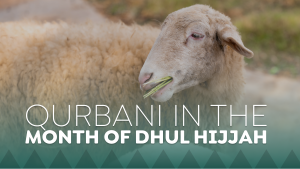When it comes to religious beliefs, few figures hold as much importance as Prophet Jesus, peace be upon him. Son of Mary, Prophet Jesus peace be upon him is a central figure in both Islam and Christianity. The reverence for him transcends theological differences, and weaves a common thread that unites these two major world religions. In addition to this, the region of Palestine stands as a unique testament to the possibility of harmonious interfaith relationships between Christians and Muslims, demonstrating a shared connection through their veneration of Prophet Jesus – peace be upon him.
To truly understand his importance in Islam and Christianity, one must explore the theological foundations that shape the narrative in each faith. Within Christianity, Prophet Jesus is regarded as the Son of God, the Messiah, and the saviour of humanity. His teachings, crucifixion, and resurrection form the cornerstone of Christian theology, emphasising themes of love, redemption, and salvation.
In Islam, we consider Prophet Jesus peace be upon him as a revered prophet, known as Eesa (عيسى) in Arabic. The Quran, the holy book of Islam, provides an account of the miraculous birth of Prophet Jesus to the Virgin Mary (Maryam), highlighting his role as a messenger of Allah. Whilst in Islam we acknowledge Jesus as a prophet, we do not accept the Christian belief of his divinity and crucifixion. As Muslims we believe that Allah SWT in Al Ahad, The One, He does not beget and nor is He begotten.
Despite these theological differences, the shared importance of Prophet Jesus peace be upon him becomes a powerful point of connection between Islam and Christianity. Both faiths recognise him as a figure of immense spiritual significance, embodying teachings of compassion, justice, and devotion to Allah SWT. This shared reverence provides a foundation for interfaith dialogue and mutual understanding.
If we now shift our focus to the blessed land of Palestine, where religious diversity is not just a historical fact but a living reality. Here, Christians and Muslims coexist, sharing not only the same geographic space but also a profound respect for Prophet Jesus peace be upon him, that transcends religious boundaries. The significance of this shared connection becomes even more evident when examining the interfaith relationships between Palestinian Christians and Muslims.
In Palestine, the birthplace of Prophet Jesus peace be upon him, the interfaith dynamic is characterised by a remarkable degree of harmony. The city of Bethlehem (Bayt Lahm), with its iconic Church of the Nativity, is not only a site of religious pilgrimage for Christians but also revered by Muslims. The shared recognition of Prophet Jesus peace be upon him as a prophet, and the acknowledgment of the importance of religious sites create a common ground that fosters unity.
The relationships between Palestinian Christians and Muslims extend beyond mere coexistence; they reflect a shared cultural and historical heritage. Families often consist of members from both religious communities, and traditions are intertwined in a way that transcends religious labels. This organic blending of cultures demonstrates the deep roots of interfaith relationships in the region.
Moreover, events like Christmas and Eid are occasions that bring Palestinian Christians and Muslims together, reinforcing a sense of shared celebration and community. The spirit of togetherness during these festive times is a testament to the mutual respect and understanding that permeate daily life in Palestine. It showcases the ability of communities to find common ground, even in the midst of religious diversity.
The example set by Palestinian Christians and Muslims challenges stereotypes and misconceptions about interfaith relationships. It highlights the possibility of coexistence and collaboration, proving that a shared reverence for a religious figure such as Prophet Jesus peace be upon him, can be a unifying force rather than a source of division.
In examining the interfaith relationships in Palestine, it’s essential to recognise the role of mutual respect and acceptance. Both communities appreciate and celebrate each other’s religious practices and traditions. The key lies in acknowledging the shared values that transcend religious labels, fostering an environment where diversity is not just tolerated but embraced.
The unique dynamic in Palestine is a living testament to the idea that religious differences need not be a barrier to understanding and collaboration. In a world often marked by religious tension, the example set by Palestinian Christians and Muslims serves as an inspiration for communities globally to seek common ground and build bridges of understanding.
In conclusion, the importance of Prophet Jesus peace be upon him, in both Islam and Christianity provides a profound basis for shared understanding between these two major world religions. The narratives, teachings, and cultural significance of Prophet Jesus peace be upon him create a common thread that unites believers across theological divides. Nowhere is this shared connection more evident than in Palestine, where Palestinian Christians and Muslims exemplify a harmonious interfaith relationship. Their ability to coexist, celebrate shared traditions, and respect each other’s religious practices stands as a beacon of hope and an invitation for communities worldwide to embrace the possibilities of unity amid diversity.





